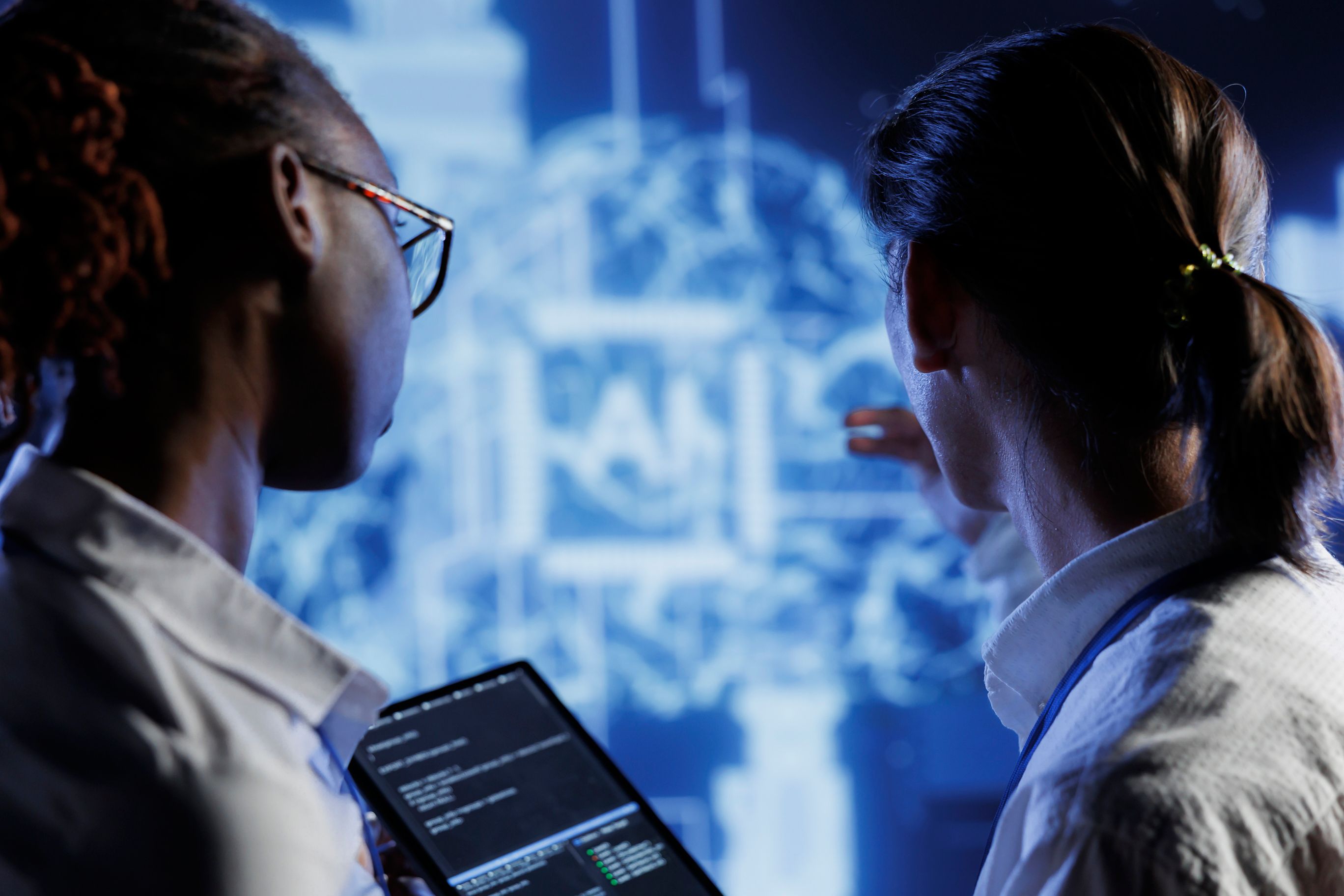As artificial intelligence transforms industries, the real challenge for organisations is ensuring a people-centric approach. Adopting AI is not just about technology and ROI, it is fundamentally about people. Focusing exclusively on technical aspects may lead to innovative ideas that sound impressive but ultimately fail to resonate with the individuals who need to adopt it.
Throughout history, each industrial revolution has reshaped the dynamics of work, but the pace of change we are experiencing now is unprecedented. Leaders are now finding that they need to adopt AI—and fast—to stay relevant. As noted in Forbes (2024)1, “AI is every leader's responsibility,” emphasising the urgency for leaders to embrace this technology. By focusing on human-AI synergy, empowering employees, fostering continuous learning, and redefining leadership, businesses can successfully navigate this transformation.
In this article, KPMG in Malta's People and Change Team explores how businesses can blend cutting-edge AI with a focus on their most valuable asset: their people.
Human-AI Synergy
The integration of artificial intelligence within the workforce presents a unique opportunity to create synergy between humans and AI. Rather than viewing AI as a replacement for human jobs, businesses should focus on leveraging AI to augment human capabilities. By automating repetitive tasks, AI frees up employees to engage in more strategic, creative, and meaningful work. As noted by the International Labour Organisation (2023), "AI is likely to augment rather than destroy jobs."2 This shift not only enhances productivity but also fosters job satisfaction and innovation.
Redefining the Organisational Structure
As AI streamlines operations by automating routine tasks, organisations can strategically redefine roles and responsibilities. This process involves identifying which tasks are most impacted by AI and how human skills can be redirected towards higher-value activities such as:
- Complex problem-solving;
- Innovation;
- Improving team and clients’ experiences and interactions;
- Enhancing human relationships.
Empowering Employees through AI: Upskilling and Reskilling
To make the most of AI, companies need to train their employees. People cannot adopt what they do not know or understand. Teaching them how to use AI tools is fundamental. This not only demystifies AI, making it less intimidating, but also empowers employees to use these tools effectively.
In our work at P&C KPMG in Malta, we have seen firsthand the importance of structured training in helping employees overcome initial resistance to AI. For example, during the rollout of a generative AI platform in a major enterprise, we created training journeys on prompting, and interactive sessions focused on practical applications relevant to employees' daily tasks. These initiatives not only made the GenAI tool less overwhelming, but also led to increased adoption and more meaningful use of the technology.

Investing in training ensures employees acquire the skills needed to thrive in the AI age. This includes encouraging creativity, adaptability, critical thinking, problem-solving, and promoting a culture of continuous learning that supports upskilling and reskilling efforts
Of course, this shift will bring changes in the skill sets required within your workforce, which, in turn, will impact your talent acquisition process. When hiring, it may be beneficial to focus on candidates with strong creative, adaptive, and technological skills. These qualities are essential for navigating and leveraging AI effectively in your organisation.
Promoting a Culture of Continuous Learning
The AI revolution is not a one-time event; it is constantly evolving and will continue to do so in the future. A culture of continuous learning helps employees keep up with new skills and effectively use AI. Encouraging employees to embrace lifelong learning and stay updated with the latest AI developments is vital. This can be achieved through regular training programmes, workshops, and access to online learning resources. A culture that values and supports continuous learning not only enhances employee skills but also drives organisational agility and resilience.
Our experience has highlighted how critical “change agents” or “trailblazers” are in promoting this culture. These individuals, who hold a growth mindset, are naturally adaptable, creative, and tech-savvy, have proven to be key drivers in fostering continuous learning across the organisation. Their enthusiasm for AI and willingness to explore its potential encourage others to engage in learning and adopt new tools. Additionally, they contribute to create psychological safety and an environment where employees feel safe to experiment, stumble, and grow, empowering their peers to explore AI without fear of failure.
By leading through example and actively sharing their knowledge, these trailblazers help to demystify AI, making it more accessible to their peers. Their influence creates a ripple effect that supports a learning mindset and ensures that the organisation stays agile and prepared for future advancements in technology.
Redefining Leadership in the AI Era
Leadership plays a decisive role in navigating the AI revolution. Leaders must proactively understand AI technologies and their implications for the business and its workforce. While championing a people-centric approach. They are responsible for reskilling, upskilling and augmenting the workforce, to ensure relevancy in this new era. Additionally, effective leadership in the AI era involves promoting an inclusive and adaptive organisational culture that embraces change and innovation, while providing peace of mind and direction during implementation.
Listen to Your People and Metrics

Equally important is the need to listen to both your people and the metrics. If AI tools are not being adopted as expected, the simplest and most effective way to understand why is by asking your employees. Establish robust channels to gather feedback from employees at all levels. This will help you identify areas of improvement, address concerns, and ensure that the AI systems are truly augmenting human capabilities.
Concurrently, usability and adoption metrics provide data that can highlight trends, measure effectiveness, and guide strategic adjustments. This dual approach of combining employee feedback with quantitative data creates a dynamic loop of continuous improvement, helping your AI integration meet the real needs of the workforce while driving organisational success.
Our Role in the AI Journey
The AI revolution is here, transforming the way we work and bringing new opportunities and challenges. To succeed, organisations must focus on a people-centric approach that combines human and AI strengths, reshapes roles, and supports continuous learning.
KPMG Malta's People and Change Team is committed to helping businesses navigate this change. With AI at the top of the agenda, change management plays an essential role. We coach leaders, create awareness, and empower employees to use AI effectively.
We help redefine roles, provide training, and promote a culture of continuous learning. Our goal is to ensure your organisation and its people thrive in the AI era. Our team is here to guide you through this journey, transforming the potential of AI into tangible benefits for your business and your people.


